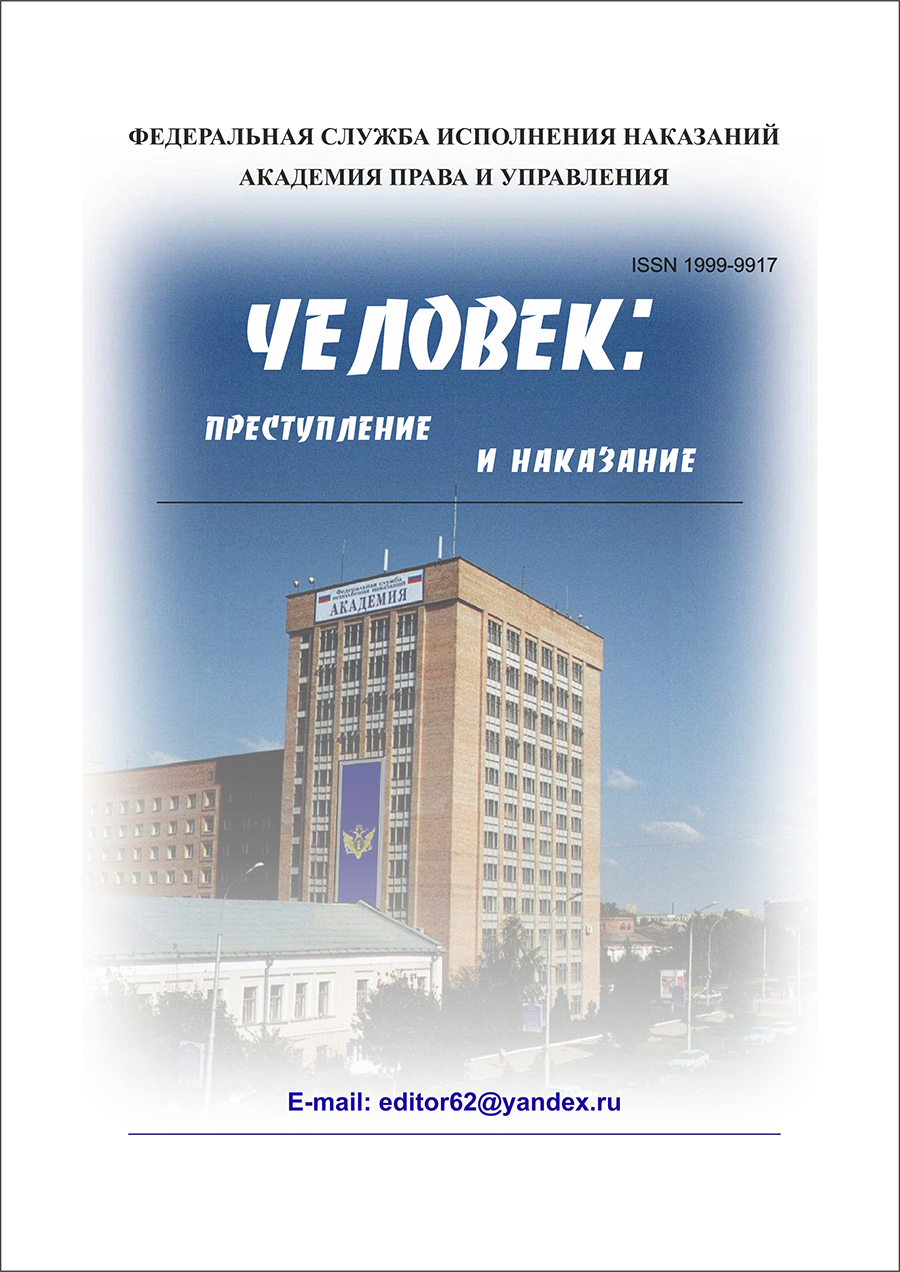Russian Federation
UDC 343.848
The article is devoted to the theoretical and methodological foundations of studying the processes of correction and re-socialization of convicts. The necessity of addressing the potential of the methodology of qualitative sociological research in the study of these processes is substantiated. It is also proposed to use the approach of social constructivism to identify the ideas of convicts and persons who have served sentences about the processes of correction and re-socialization. The conclusion is substantiated that such studies help to focus attention on the personality of the convict and his individual characteristics. This is especially important in the context of the formation of the probation institute in Russia. It is the emphasis on the personal characteristics of convicts that should be made when developing individual programs of re-socialization, social adaptation and social rehabilitation, which are provided for by the Federal Law "On Probation in the Russian Federation".
correction, re-socialization, convict, correctional institutions, methodology, qualitative sociological research
1. Seliverstov, V. I. 2018, ‘Special census as a method of studying the personality of convicts’, Bulletin of the Samara Law Institute, iss. 4(30), pp. 62–68.
2. Antonyan, E. A. 2018, Personality of a repeat offender, Yurlitinform, Moscow.
3. Koretsky, D. A. 2023, ‘Assessment of the criminal's personality in theory and practice’, Ural Journal of Legal Research, iss. 3, pp. 3–20.
4. Maxfeld, M. G. & Babbie, E. R. 2018, Research Methods for Criminal Justice and Criminology, Boston.
5. Berger, P. & Lukman, T. 1995, Social construction of reality. A treatise on the sociology of knowledge, Medium, Moscow.
6. Steinberg I., Shanin T., Kovalev E. & Levinson A. 2009, Qualitative methods. Field sociological Research, ed. by I. Steinberg, Alethea, St. Petersburg.
7. Davies, P &, Francis, P. 2018, Doing Criminological Research, SAGE Publishing, London.
8. Shestakov, D. A. 2004, Law and democracy: collection of scientific works, iss. 15, BSU, Minsk.
9. Antonyan, Yu. M., Enikeev, M. I. & Eminov, V. E. 1996, Psychology of the criminal and investigation of crimes, Lawyer, Moscow.
10. Shchukina, N. P. 2021, ‘Criminology of convicts in Russian discourse’, Legal Bulletin of Samara University, vol. 7, iss. 4, pp. 102–108.
11. Klenova, T. V. (ed.) 2019, Resocialization and real inclusion in civil society of convicts: monograph, Yurlitinform, Moscow.
12. Adoevskaya, O. A. 2019, ‘Preparation of convicts for release from serving their sentence as a mechanism of re-socialization and their real inclusion in civil society’, Penal law, vol. 14(1–4), iss. 2, pp. 156–164.
13. Grushin, F. V. 2024, Penal system: new challenges’, in Collection of materials of the XI International Scientific and practical Conference dedicated to the 145th anniversary of the penal system of the Russian Federation, Perm.
14. Seliverstov, V. I. (ed.) 2020, Social adaptation (resocialization) of persons released and released from correctional institutions: the results of a theoretical study, Jurisprudence, Moscow.
15. Osipov, G. V. & Moskvichev, L. N. (eds) 2003, Sociology. Fundamentals of general theory: textbook, Norma, Moscow.
16. Alferov, Yu. A. 1994, Penitentiary sociology and re-education of convicts, Domodedovo.
17. Antonyan, E. A. 2014, The personality of a repeat offender: criminological and penal investigation: Sc.D thesis (Law), Moscow.
18. Antonyan, Yu. M. 2004, The identity of the criminal, Law Center Press, St. Petersburg.









